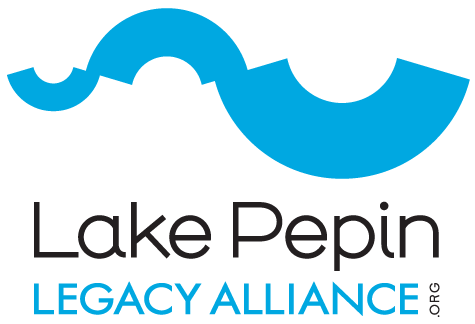Maris Gilbert is an artist advocating for water quality improvements to the water she loves. See her Lake Pepin artwork at two upcoming exhibits this fall: Utopian Lake Pepin at Red Wing Arts and "Beauty in Peril" associated with Art to Change the World in Minneapolis, MN.
By: Mac Becco
Maris Gilbert loves water—and she always has. As a Florida native, she grew up with water in every direction. When she moved to Minnesota for art school and discovered Lake Pepin, she felt like she’d found a mini-ocean in the heart of the Midwest. She spent time at Lake Pepin whenever she could. The lake became a place she could relax, as well as a source of inspiration for her art.
But when Maris learned about the serious threats to Lake Pepin, everything changed. She felt it was unfair, even wrong, to stand by and do nothing while the lake that brought her so much joy and artistic inspiration was in peril.
So, she decided to create art that would highlight threats to Lake Pepin and, hopefully, inspire others to take action.
Today she works as a therapist, environmental activist, and artist who is on a mission to inspire greater love for local waters.
Home Away from Home
Maris is an participating artist of Art to Change the World. Learn More here.
Maris moved to Minneapolis to attend MCAD, and she brought her obsession with water and shorelines with her. She took sailing classes at Lake Calhoun, but she missed the expansive waters of her Florida childhood. Eventually, a women’s sailing excursion acquainted Maris with Lake Pepin and she finally found the big water she had been missing.
“After a weekend sailing on Lake Pepin, I just fell in love with the whole place. It brought back memories of sailing and being at the helm with my dad. Of course, it’s also just really gorgeous,” says Maris.
For years after, Maris visited Lake Pepin for art shows, artistic inspiration, and personal rejuvenation from city life. Then, she took a Lake Pepin Legacy Alliance (LPLA) boat cruise and learned that Lake Pepin’s sweeping vistas and glistening water were deceiving. The lake was—and still is— filling with sediment and in a fight for survival. Her Midwestern ‘ocean’ was only a few inches deep in certain spots and was in danger of disappearing in just a few generations.
“I never knew there was a sediment problem until I started following the Lake Pepin Legacy Alliance,” admits Maris.
That year, the LPLA boat cruise connected local artists with scientific experts who discussed sedimentation, endangered mussels, and the lake’s value as a water filter to the Upper Mississippi River. Maris was surprised that she hadn't heard any of it before and stunned by how similar the issues seemed to those in Florida. As she became more engaged, Lake Pepin truly became her home away from home.
You also see Maris Gilbert's artwork at the Red Wing Arts this fall. More info here.
Since then, Maris has become a fierce advocate for Lake Pepin and one of LPLA’s most engaged members. She donates artwork to LPLA fundraisers, attends LPLA events, interacts with LPLA videos online, and participants on the LPLA Council of Champions. As a Minneapolis resident, Maris is hoping to use her art to increase awareness of Lake Pepin sedimentation throughout the Twin Cities.
Art as Activism
Maris talks like the most approachable scientist you will ever meet. Ask her about a painting and she will explain complex environmental issues in a way that touches the heart and activates the brain. She sees environmental patterns, relationships, and connections that most of us would miss. Highlighting those relationships in her artwork, Maris hopes to inspire people to connect with water in new ways and take action to protect them.
“My goal in making art is to be an advocate—to create something that inspires people to say and do something. I used to just show nature’s beauty, but now I show the beauty and the peril,” she says.
In a recent example, Maris painted the Le Sueur River bluffs, an erosive source of sediment, with a scene of Lake Pepin embedded in the corner. The painting was inspired by one of LPLA’s online videos that discussed the priority areas for sediment reduction efforts.
Maris likes to focus on shorelines because they represent the connection between water, land, and people— and they are often where people are most affected by environmental degradation. This is definitely true in Lake Pepin, where sediment accumulation is creating new “shorelines” that are destroying wildlife habitat, interfering with recreation, and isolating local communities.
Natural water filters, such as mussels and mangroves, are another artistic focus for Maris because they have important connections that regulate ecosystem balance. Lake Pepin mussels filter suspended sediment in a similar way that Florida mangroves filter salt from seawater. They are both crucial to aquatic life and water quality. After recognizing this parallel during the LPLA boat ride, Maris was motivated to paint a series of freshwater mussels using sludge from her paint jar—an artistic representation of Lake Pepin sediment affecting native species.
“The whole lake is a filter for the Mississippi River and then you have these tiny filters in the lake, like the Higgins Eye Mussels, that are endangered. What happens when you mess with natural water filters?” she wants people to ask.
This fall, Maris is participating in a two-week event with Art to Change the World, a Minnesota non-profit that brings together art and expertise to spark positive social change. During the event, Maris will underscore the connection between her two homes—Lake Pepin and the Florida coast. These distant waters are connected by the Mississippi River, which flows into the Gulf of Mexico and creates an ecological “dead zone” that extends to the Florida panhandle. Of course, they're also connected by Maris's heart.
In a two-floor art installation, called “Beauty in Peril”, Maris will display paintings and water samples from Lake Itasca (ground floor), Lake Pepin (narrow staircase), and the Florida coast (second floor). LPLA Executive Director, Rylee Main, will join as an “authentic voice” or expert to share more information and answer public questions during a workshop devoted to the cause.
Action Creates Hope
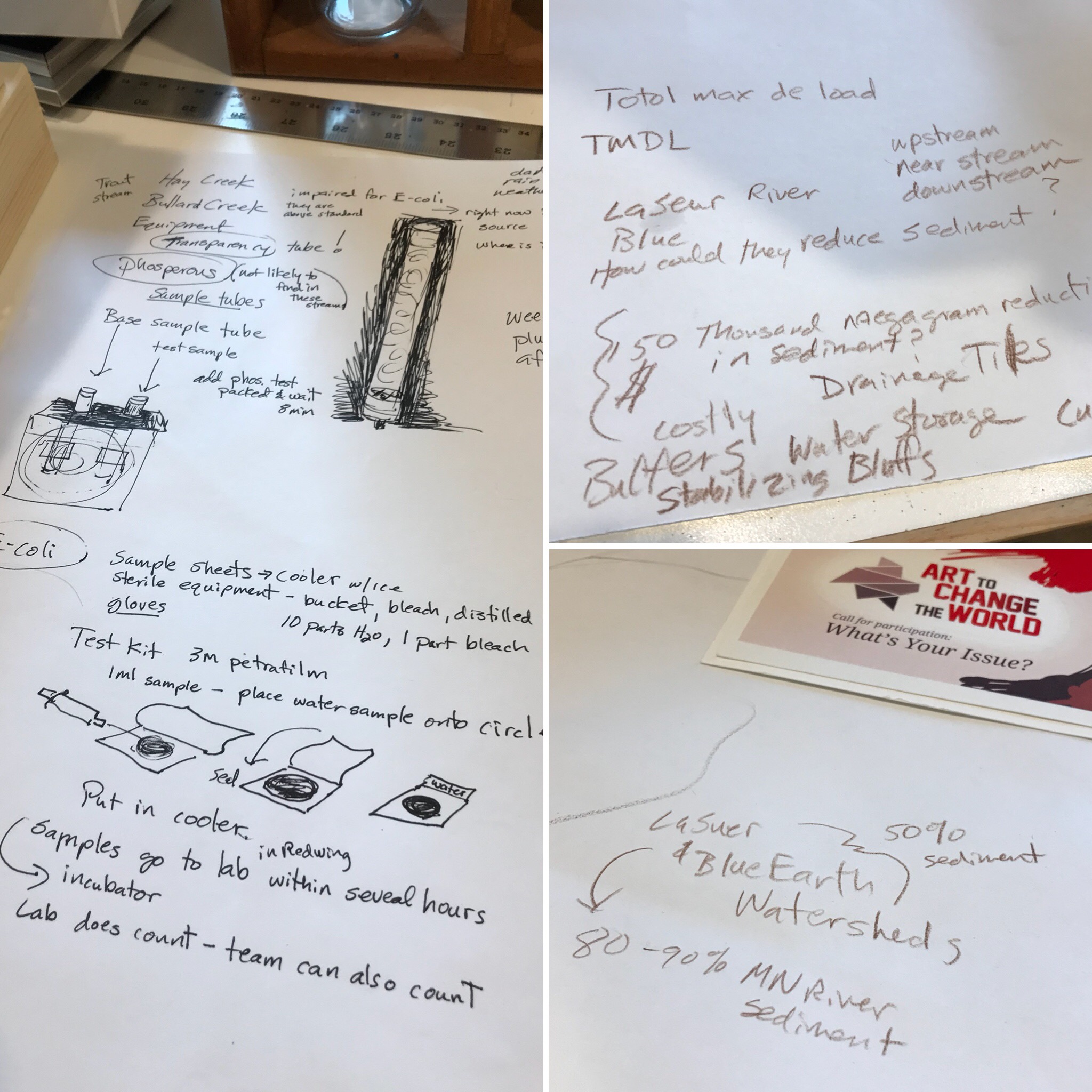
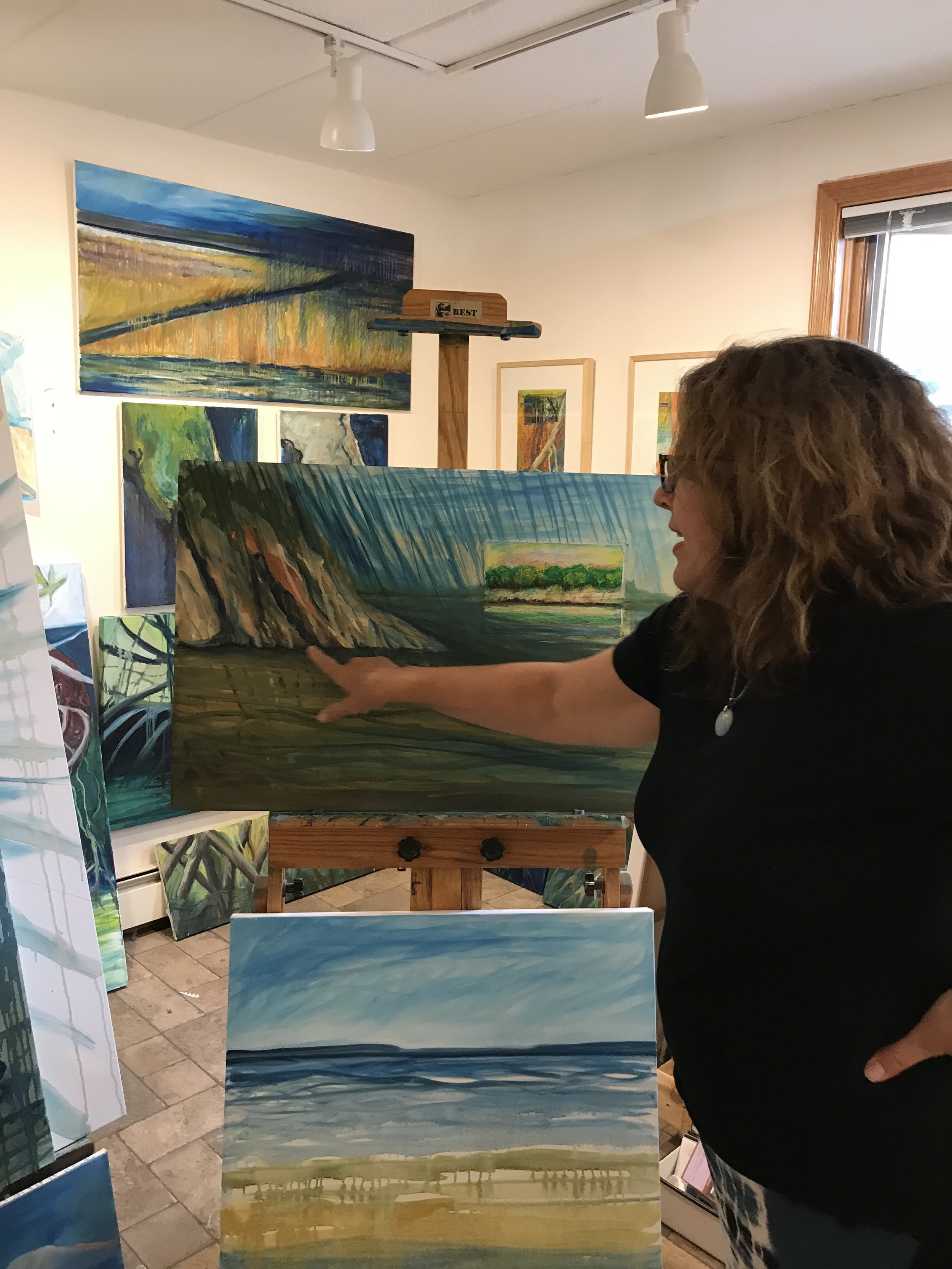
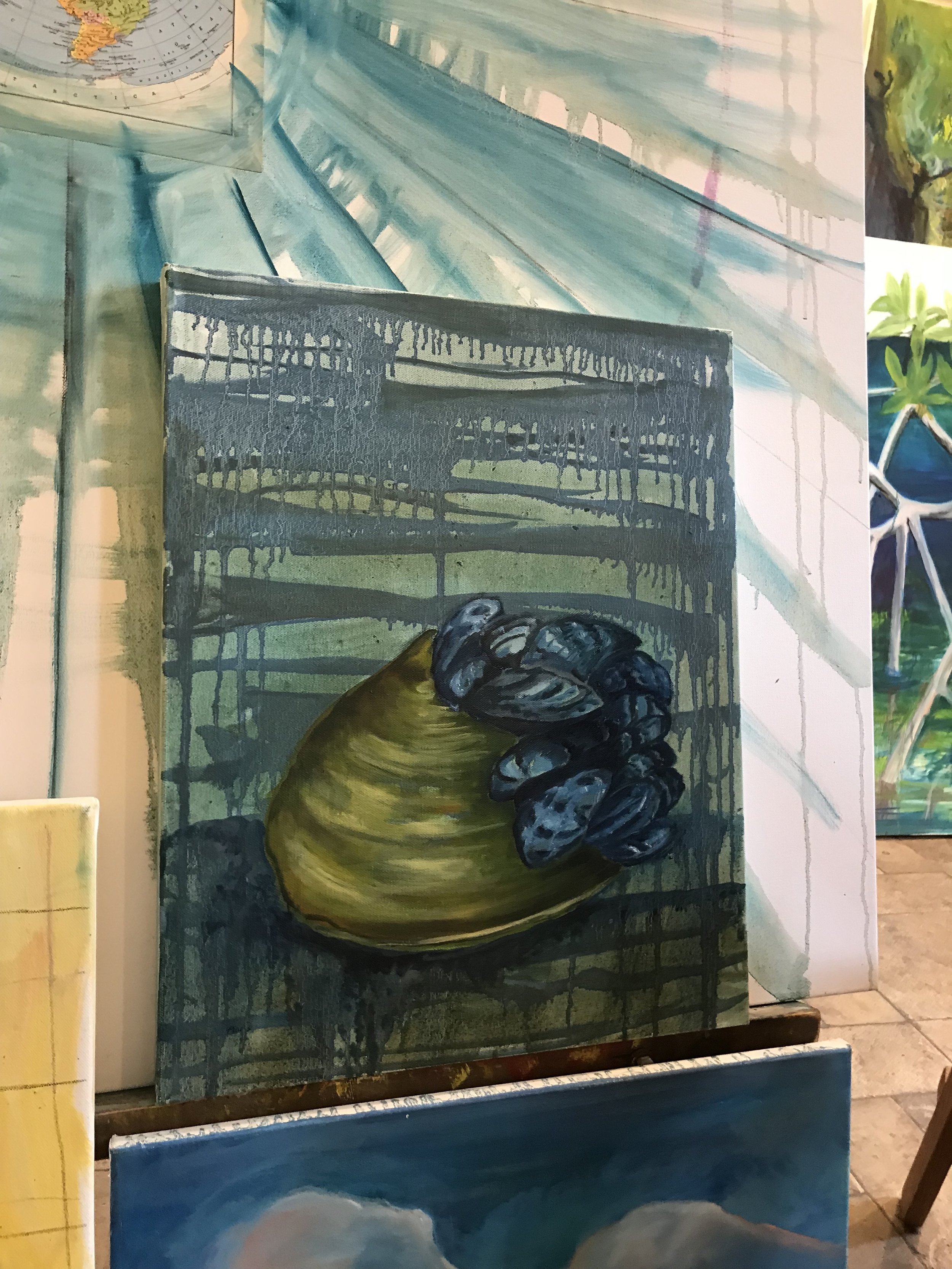
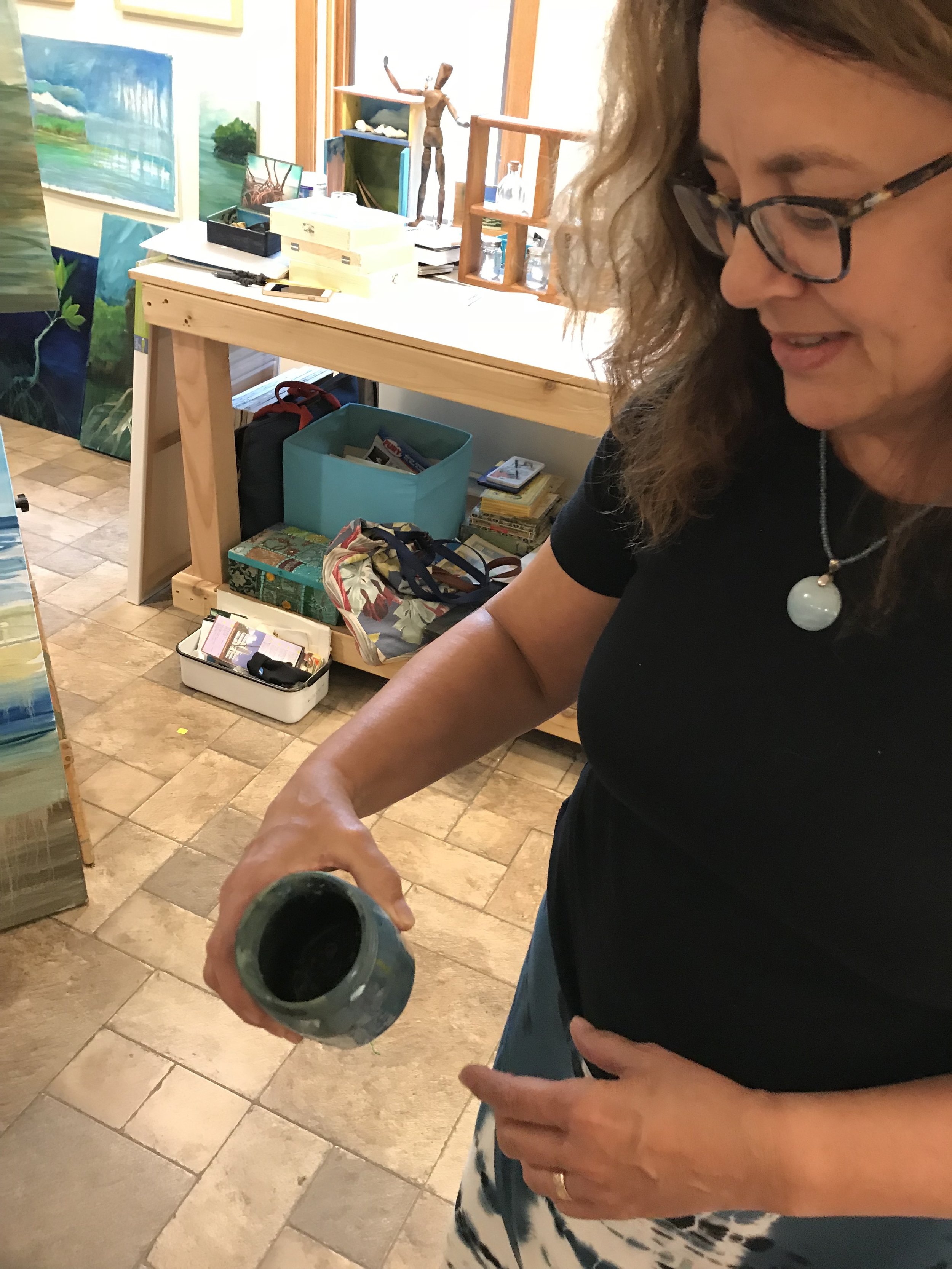
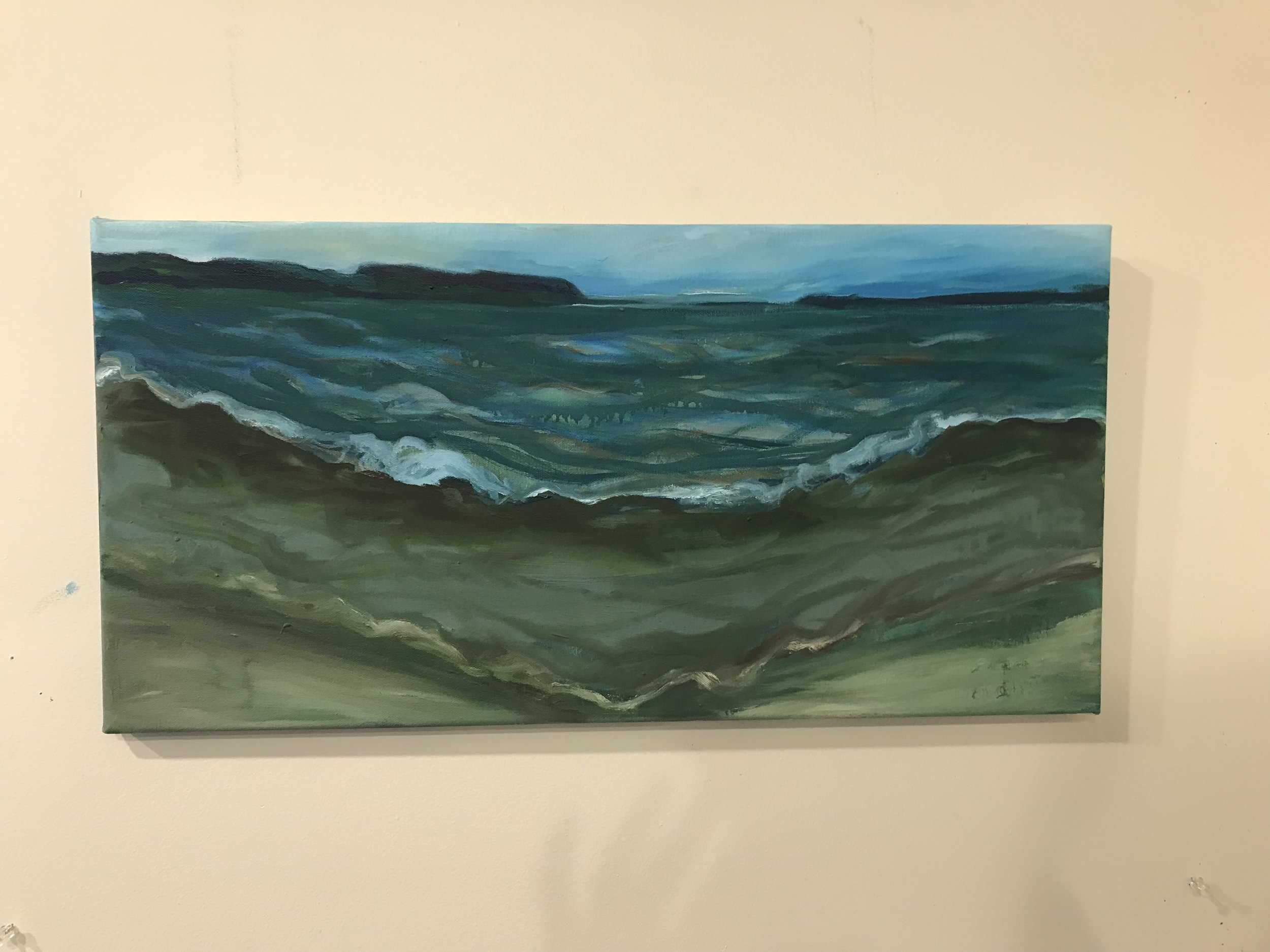
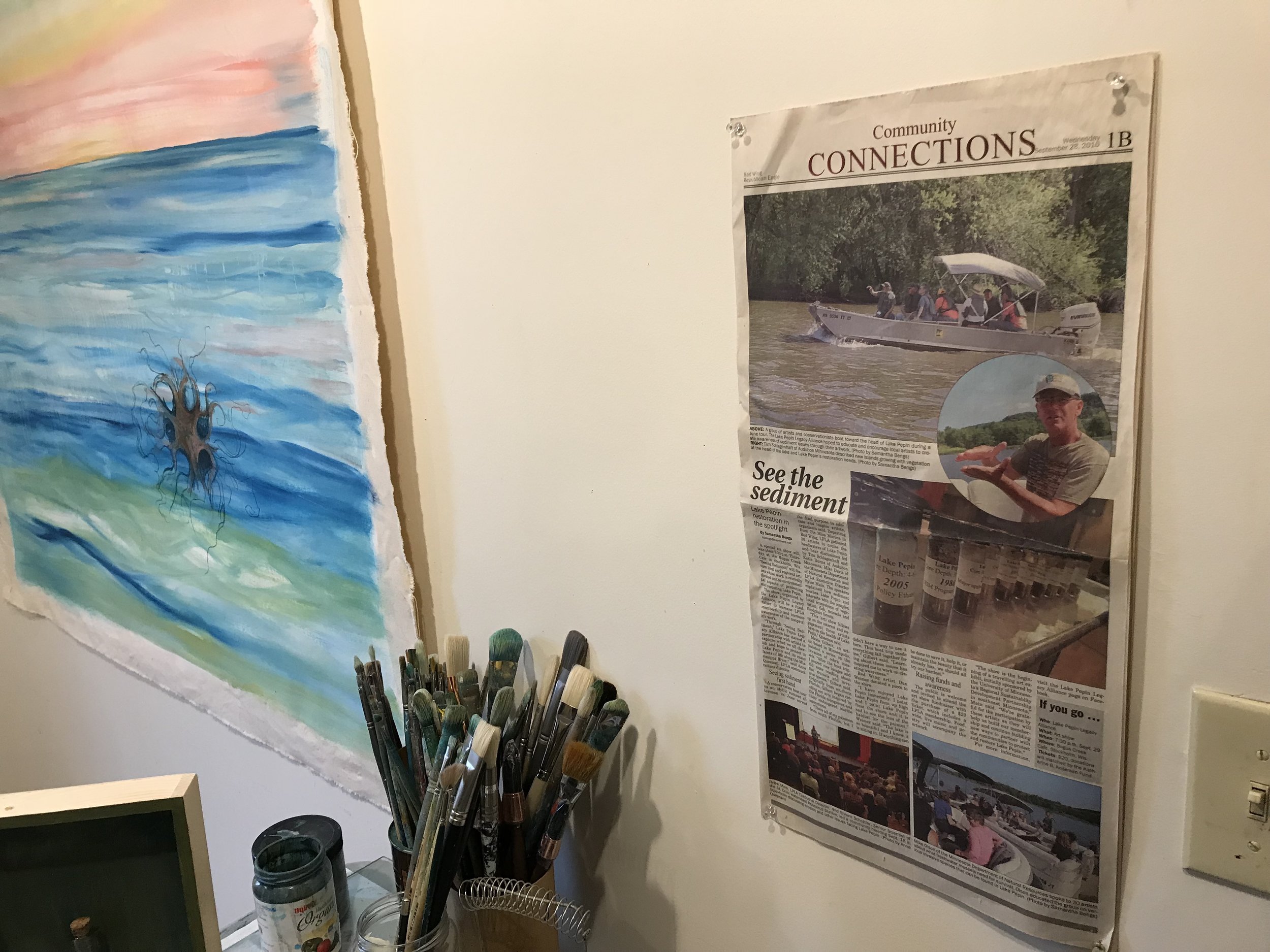
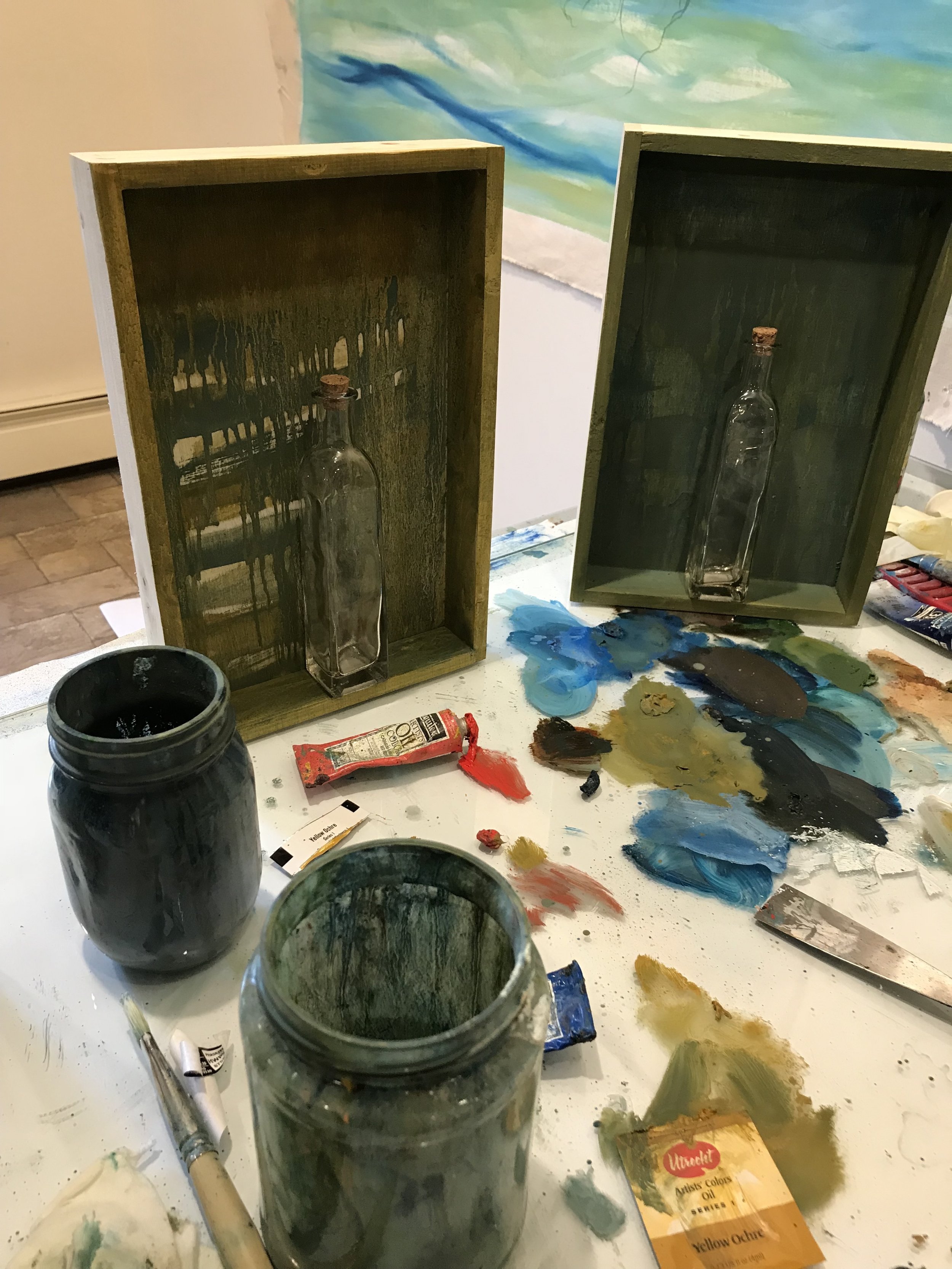
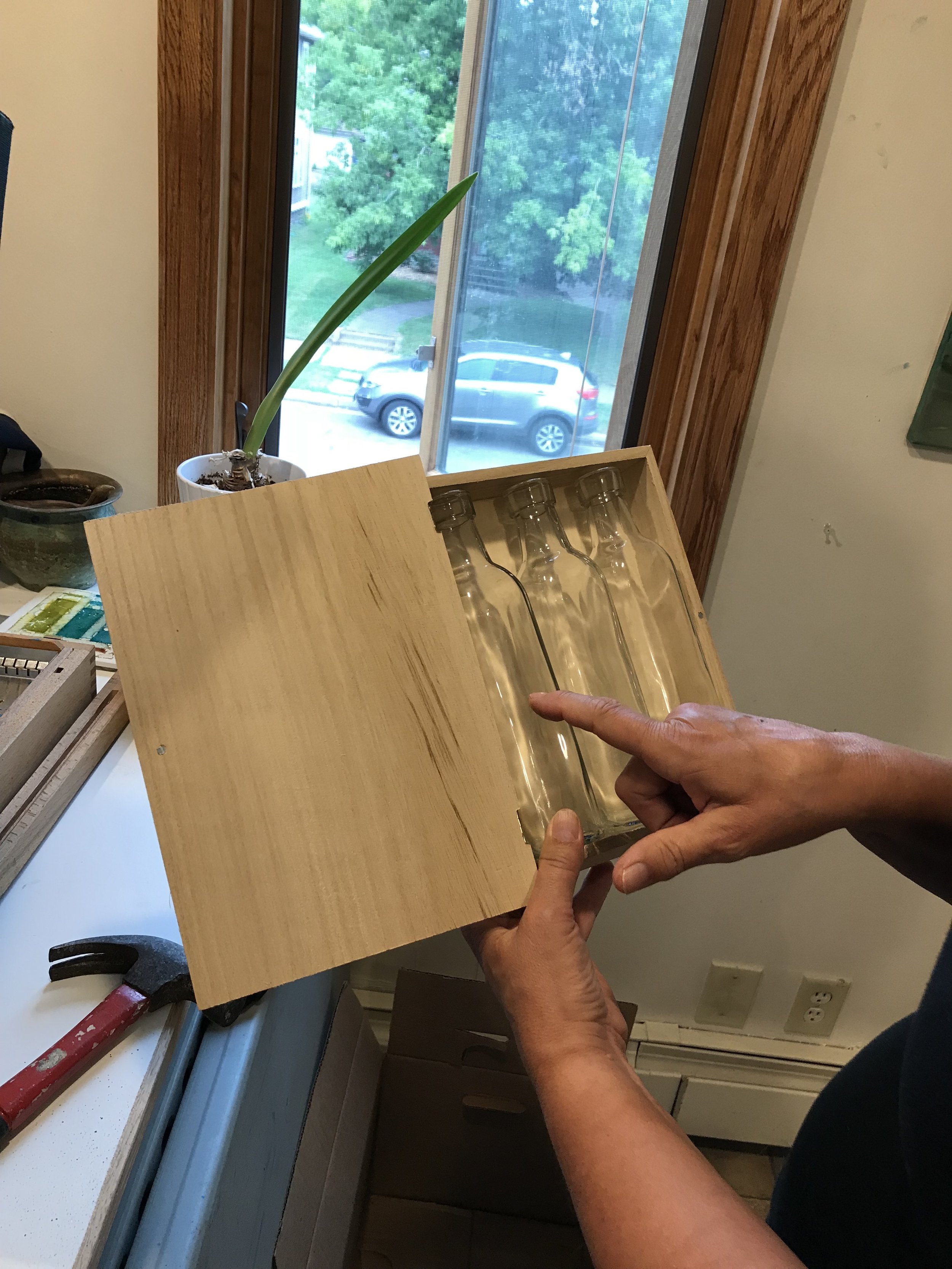
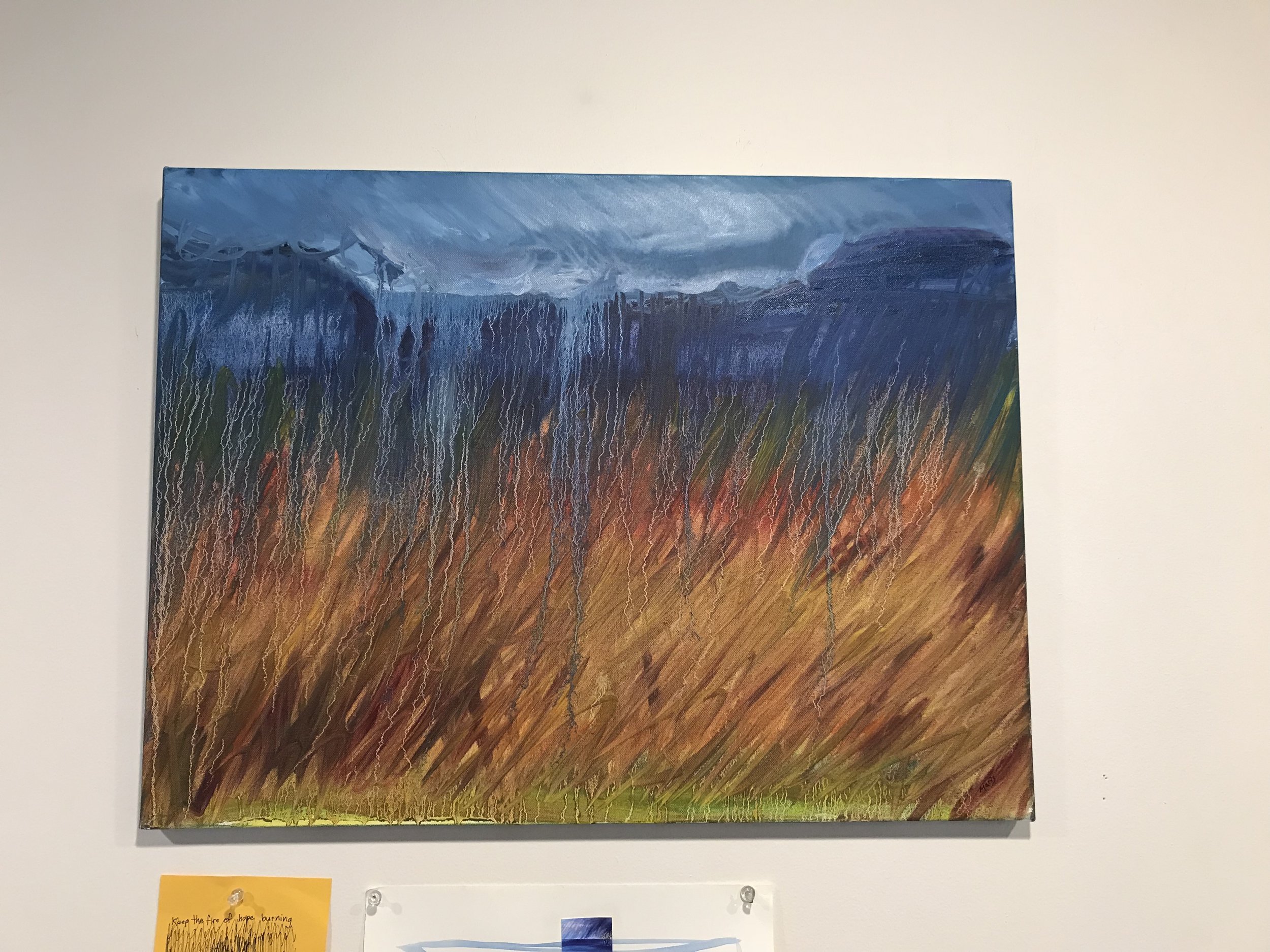
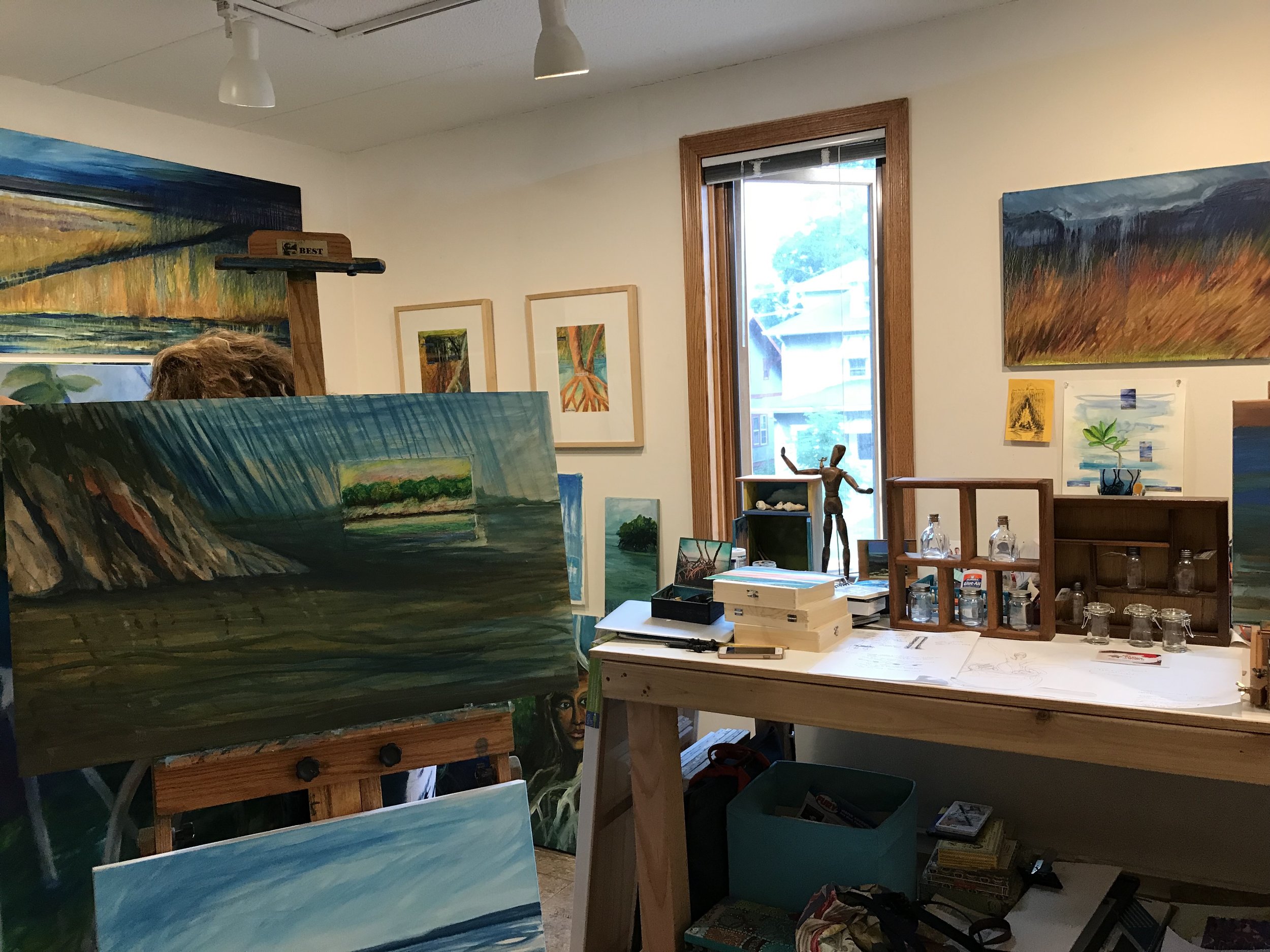
The water quality issues facing Lake Pepin and the Florida coast are massive and complex. To stay hopeful, Maris keeps herself engaged and informed. This is evident by the hand-written notes, scattered throughout her studio, that she diligently records while watching LPLA videos and painting.Maris says that she is hopeful about Lake Pepin’s future because,
“I’ve seen the progress LPLA has made in such a short period of time. The restoration project gives me hope that people are ready to take action. People are on it.”
Of course, she is one of those people. Her advice to others?
“Become a member, give money, and go to an event every once in a while. Follow LPLA on Facebook, share their posts, watch their funny videos, and tune in on Mondays for heaven’s sake.”
We couldn’t agree more. Thank you, Maris, for your endless support and activism. You are the tide rising all of our boats.
